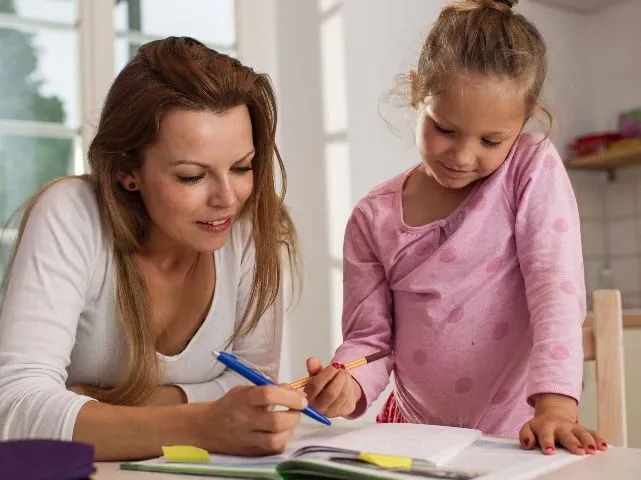 Want to improve your child’s concentration & listening skills? Look no further!
Want to improve your child’s concentration & listening skills? Look no further!
If ever there was a time to support your child by helping them to improve their learning skills, that time must be now! Even when routines are not disrupted, many young children need help to develop the skills of listening and concentration to maintain focus in the classroom.
Here are some ways you can teach your child to be in control of their focus and great at listening, too!
Concentration:
- DEFINE focus and concentration – primary aged children need to feel things in their body to help their brain properly understand the meaning
- To help your child FEEL concentration, ask them to balance a book on their head!
- After the book has stopped falling off, the giggling has ended and you see that they are focused, TELL them that what they are feeling is called ‘concentration’.
- EXPLAIN:
- Concentration means you use all your energy to do one thing at a time
- If you get distracted you need to take control inside yourself to get back to the job
- Being in control is a grown-up thing to be able to do!
- To help their brain stay focused teach the Bubble Strategy (see insert) to use in class.
Listening:
Surprisingly, only around 2% of the population ever have any formal training in listening and yet it’s one of the most important skills we need for learning! You can help your child get off to a great start with the following steps:
- Have a chat with your child about what they think listening really means
- Make sure they know the difference between listening and hearing. For example:
- Hearing is something that happens automatically
- Listening is a skill, it is something we DO which means we can get better at it with practise
-
Tell them you’re going to have a little practise to see how well their brain is learning to listen for them.
-
Say a simple sentence to your child for them to repeat back to you exactly as it was said: e.g. I put my coat on and went outside to play.
Can your child repeat it word perfectly?
They might need to do it several times!
Suggest they repeat the sentence in their head when you say it because that will help their brain to remember it.
They can do this to improve listening at school, too, when their teacher is speaking to them.
The Bubble Strategy (to help your child manage distraction in the classroom)
- Talk about the classroom and what distracts them
- Look at the school timetable and show your child the blocks of time when they need to be listening and concentrating.
- Tell them to help their brain focus in the classroom, they need to imagine they are inside a big, invisible bubble. It can be any colour they like!
- Inside the bubble all they can hear is their teacher talking; all other noise is outside the bubble and in the distance.
- They can shake off their bubble when they go out to play and go back into it in the next lesson.
- Give them a small, pretty stone or bead inside their pencil case and tell them that every time they see it, it will remind them to concentrate and listen and check that they are using the bubble when they need it.
- After school, ask them how their concentration was in the lessons it was needed.
Develop and strengthen concentration skills with this daily starter:
This plan is for 10 minutes before school each morning for at least one week but can go on throughout the school year or until your child feels they manage to focus well in class. Substitute and change activities as the weeks go on but ALWAYS TIMED.
2 minutes warm up each day: choose one of these
- Throwing ball to wall and catching – this helps to ‘get your brain going’..
- Throwing ball to person – or hand to hand – and catching
- Hopping from foot to foot
2 minutes learning essentials
- Copy out 5 words to learn spelling OR copy out and say a times table to learn 2 minutes to release tension and develop hand control
- Squeeze a stress ball or equivalent (plasticine) 3 minutes – to mentally prepare for the day
- look at the timetable and when they will need to focus in the day
- remind your child about bubble strategy and how to focus
- check their bag to make sure they have what they need
This article was created with extracts from my book: 100 Things to Learn before you’re 10 – an insightful guide for parents available available here:





Leave a Reply